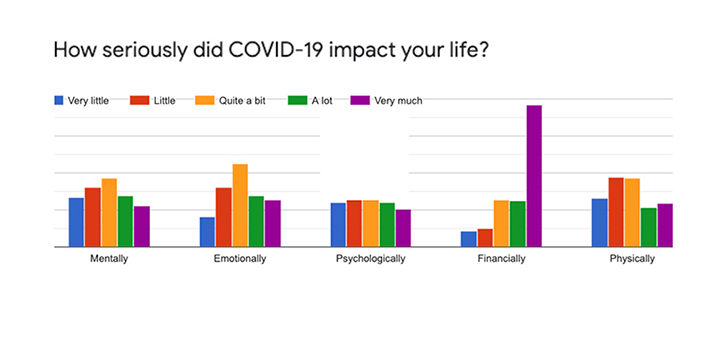Stella Maris pandemic survey uncovers looming financial crisis for developing-world seafarers
1 June 2020

A 'snapshot' survey by the international welfare charity Stella Maris has found that the main concern of seafarers about Covid-19 is the pandemic's financial impact.
The charity recruited 365 participants to answer questions in an online survey about how the pandemic had affected them. Most were from the Philippines – the world's largest contributor of maritime labour – but there was a contingent of Indian participants and a few from other countries.
'The survey does not pretend to be a professional one which provides scientific results,' said Father Bruno Ciceri of Stella Maris in his report on the findings.
'However, it can give us some sense of the scale of the problems and worries that seafarers and their families are facing now and in the future.'
This was important, he added, because data was needed to guide Stella Maris and other welfare providers in responding to 'the real needs of the people of the sea'.'
The stand-out finding from the survey came when the participating seafarers were asked to judge the impact of the pandemic on themselves using five categories: Mentally, Emotionally, Psychologically, Financially and Physically. In each category, participants could choose from responses ranging from 'Very little' impact to 'Very much'.
The responses in most of the categories were fairly evenly spread across the impact range, but in 'Financially', a large majority of participants opted for 'Very much' impact.
This strong concern about personal finances is not surprising, given the uncertain employment situation of most participants. Almost half said that they were currently waiting for a new contract, while around 30% were due to be deployed but had been grounded because of Covid-19. For 14%, their contract had been terminated because of Covid-19. The rest of the participants had seen their contract extended because of Covid-19, perhaps because of the ongoing difficulties with crew relief and repatriation.
The participants' financial worries were also likely to be related to their personal responsibilities. When asked how many members of their extended family they were supporting, nearly half of the respondents (48.5%) answered 'more than three persons', and a further 18.9% were supporting three family members.
The survey showed that providing daily sustenance for family members is the primary use of the seafarers' wages, with 257 out of the 365 participants saying putting food on the table was 'very important'. Fr Ciceri noted that this need 'will be even more pressing in the next few months when the emergency relief goods provided now by governments and charities will stop. Even the little savings set aside for a rainy day will disappear and the seafarers will be waiting to be called for a new contract.'
Looking to the future, the participants were asked about their priorities for the next six months to a year. The strongest response was in the category 'To apply for a new contract', with a large majority of participants rating this as 'urgent' or 'very relevant'.
However, most participants also indicated an interest in starting a 'livelihood project' away from seafaring. Fr Ciceri commented: 'This is a field that Stella Maris in cooperation with the principal donors could explore in providing "seed money" to start a small business to support the family of the seafarers while they are waiting to return onboard and guarantee a minimum and stable income to be used for the ordinary running expenses and in emergencies.'
Tags
